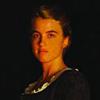The Hobbit: The Battle of the Five Armies
Movie Review

Over a decade after Academy Award winner Peter Jackson first closed the door on his surefire, classic Lord of the Rings trilogy with the nicely summarizing Return of the King, Jackson is again leaving the Middle-Earth he has so meticulously realized for the big screen. Fortunately, his closing Hobbit entry, The Battle of the Five Armies, carries Return of the King’s sort of tale-ending gravitas, with the added benefit that, as a prequel, it opens the door on its even grander child, The Lord of the Rings.
Considering how many gigantic tomes have been reduced to one under-three-hour film, The Hobbit feels stretched at three two-plus-hour epics. I barely recall the second film, The Desolation of Smaug, released last year, much less the first, An Unexpected Journey, which opened all the way back in 2012. Unlike The Lord of the Rings, whose narrative was so well-focused upon Frodo and Samwise’s dangerous task and whose characters were so memorable and discernible, The Hobbit suffers from a meandering tale, meant to be told in a briefer span than two years. An Unexpected Journey remains the most Hobbit-ish of the three, probably due to the presence of the precious Gollum. Andy Serkis should have been richly rewarded for this performance; that he has not been is nearly as unfathomable as the lack of rewards bestowed upon Ian McKellan for his collective portrayal of Gandalf. (He’s been the Grey Wizard for over a decade!) The Desolation of Smaug remains most memorable for the titular dragon, voiced so elegantly and evilly by Benedict Cumberbatch. Smaug’s brief appearance in the ultimate entry highlights the first act of what proves to be the most well-paced of the Hobbit films.
The Battle of the Five Armies might benefit most from the sheer amount of action packed into it. If your favorite parts of The Lord of the Rings were the battles of Helm’s Deep and Minas Tirith, you will love The Battle of the Five Armies, once you get past the fact that you have seen most all of it before. This battle is not staged all that differently from its Lord of the Rings kin. Still, it is fantastically realized. Billy Connolly as a dwarf warrior and cousin of Thorin Oakenshield (Richard Armitage) is an excellent treat. And the eventual, inevitable heroism of Thorin, Kili (Aidan Turner) and the other dwarves certainly redeems that ugly second act where Thorin tries to claim the throne of the A-holes. His elven competition, Thranduil (Lee Pace, last seen as Guardians of the Galaxy baddie Ronan), is no slouch in the dick department, either. Fortunately, mankind’s representative, Bard the Dragonslayer (Luke Evans, who still, unfortunately, starred in Dracula Untold), is a fairly even-keeled dude. Once two evil Orc armies show up, everybody makes up in time for one of Tolkien’s patented deus ex machinae to show up. (Painting oneself into a narrative corner matters little to a fantasy author who can conjure up some magic whenever necessary.)
One of The Hobbit film series’ biggest flaws again rears its head in this final entry. Despite wonderful character actors and makeup, the company of dwarves never approaches the level of familiarity of The Lord of the Rings’s fellowship. Orlando Bloom’s elven warrior, Legolas, proves such by his multiple acts of badassery and the fact that I remember Bloom played Legolas. No offense to Ken Stott, Graham McTavish, William Kircher, James Nesbitt, Stephen Hunter, Dean O’Gorman, John Callen, Peter Hambleton, Jed Brophy, Mark Hadlow or Adam Brown, but I still don’t know Balin from Ori. At least Aiden Turner’s Kili gets a romantic subplot with the gorgeous elf Tauriel (Evangeline Lilly, best known as Kate Austen from “Lost”); for that, he is memorable. Merry and Pippin were infinitely more distinguishable than these dozen dwarves.
One final thought before we close the book on Middle-earth again. What would The Hobbit have been like had Guillermo del Toro directed the series? Jackson’s return kept this franchise closely tied to its Lord of the Rings predecessors, but one wonders if del Toro might have injected a wickedly distinctive fairy tale glee. He remains credited on all three films’ screenplays, but what of his vision has survived? As much as I enjoyed The Battle of the Five Armies—it is easily the best of the three and a worthy peer to any of The Lord of the Rings—could del Toro have made the entire trilogy (or duology, as it was originally envisioned) something that stood more on its own, rather than as an extension of its more acclaimed sibling? The grass is always greener, and this Battle is another winner for Jackson, who may, finally, after nearly two decades, be ready to leave Middle-earth behind.












comments